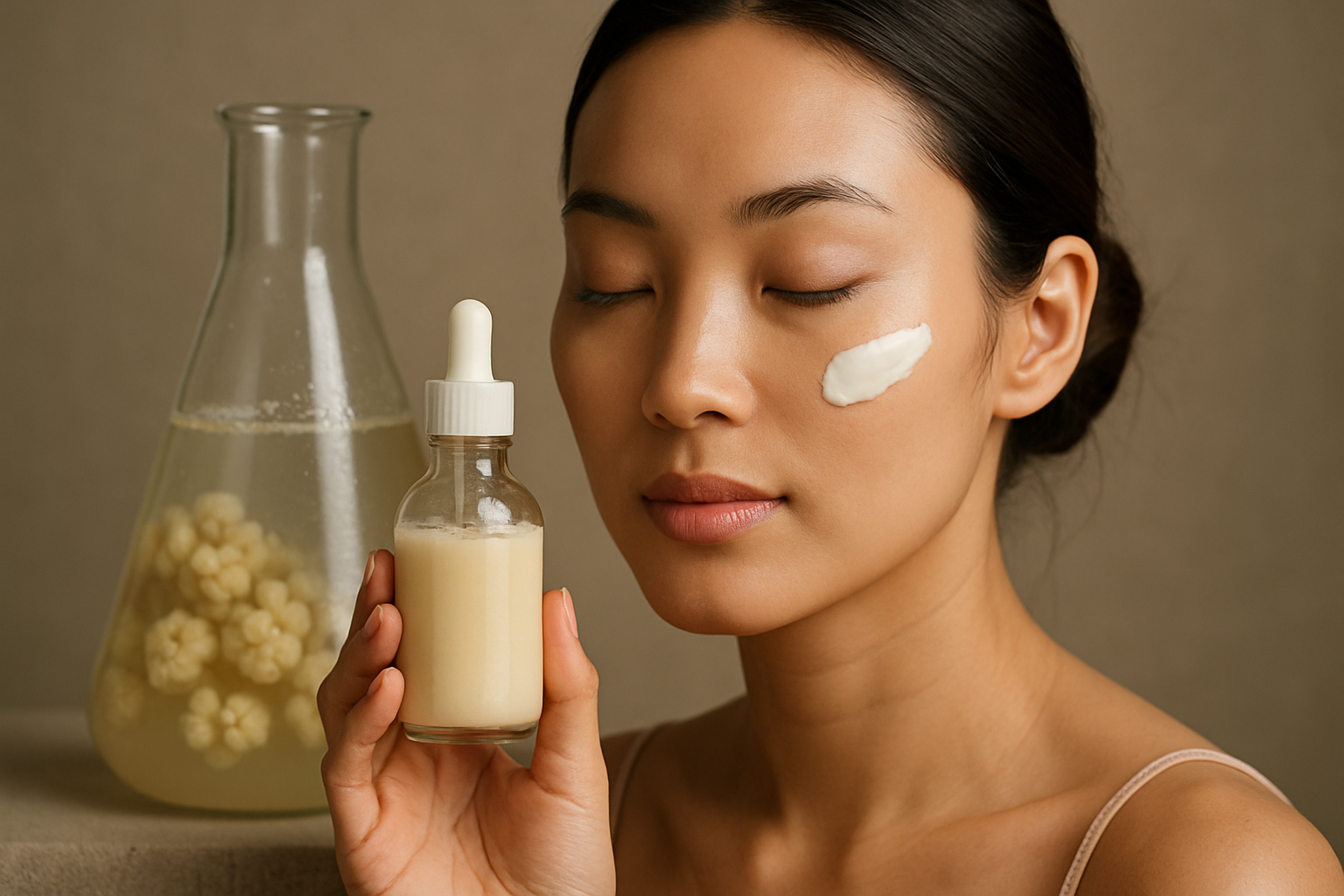Fermented Beauty: The Probiotic Revolution in Skincare
In the ever-evolving world of beauty and wellness, a new trend is bubbling up from an unexpected source: fermentation. This ancient process, long associated with foods like kimchi and kombucha, is now making waves in the skincare industry. Fermented beauty products are emerging as a potent force in the quest for radiant, healthy skin. This innovative approach harnesses the power of beneficial bacteria and enzymes to create highly effective, nutrient-rich formulations. As consumers increasingly seek natural, science-backed solutions for their skincare needs, fermented beauty is positioned to revolutionize our daily routines and challenge traditional notions of cosmetic formulation.

The fermentation process also creates natural preservatives, reducing the need for synthetic additives in skincare products. This aligns with the growing consumer demand for clean, natural beauty solutions. Moreover, fermented ingredients often have a lower molecular weight, allowing them to penetrate the skin more deeply and effectively than their non-fermented counterparts.
Historical Roots and Modern Revival
While fermented beauty may seem like a cutting-edge trend, its roots stretch back centuries. In Korea, fermented ingredients have been used in skincare for generations, with women traditionally using fermented rice water to cleanse and brighten their complexions. Similarly, in Japan, sake brewers have long been noted for their youthful-looking hands, a benefit attributed to their constant contact with fermented rice.
The modern revival of fermented beauty can be traced to the global popularity of Korean skincare routines, which often incorporate fermented ingredients. As Western consumers became more interested in Asian beauty traditions, cosmetic chemists and skincare brands began to explore the potential of fermentation in creating innovative, high-performance products.
Key Ingredients in Fermented Skincare
Fermented skincare products utilize a wide range of ingredients, each offering unique benefits. Some of the most popular fermented ingredients include:
-
Rice: Fermented rice water is rich in vitamins, minerals, and amino acids that can brighten and soften the skin.
-
Soy: Fermented soy extract is high in isoflavones, which can help improve skin elasticity and reduce the appearance of fine lines.
-
Green tea: When fermented, green tea’s antioxidant properties are enhanced, offering superior protection against environmental stressors.
-
Ginseng: Fermented ginseng has been shown to have potent anti-aging effects, helping to firm and rejuvenate the skin.
-
Fruit extracts: Fermented fruit ingredients like apple, pear, and grape can provide gentle exfoliation and hydration.
Benefits of Fermented Skincare
Fermented beauty products offer a range of potential benefits for the skin:
-
Enhanced nutrient absorption: The fermentation process breaks down ingredients into smaller molecules, allowing for better absorption and utilization by the skin.
-
Increased antioxidant activity: Fermentation can boost the antioxidant properties of certain ingredients, providing better protection against free radical damage.
-
Improved hydration: Many fermented ingredients have humectant properties, helping to attract and retain moisture in the skin.
-
Gentle exfoliation: The enzymes produced during fermentation can help to gently remove dead skin cells, promoting a smoother, more radiant complexion.
-
Strengthened skin barrier: Some fermented ingredients may help to support the skin’s natural barrier function, improving overall skin health and resilience.
The Rise of Probiotic Skincare
Closely related to the trend of fermented beauty is the emergence of probiotic skincare. While fermented products contain the beneficial byproducts of bacterial activity, probiotic skincare incorporates live bacteria directly into formulations. These products aim to support the skin’s microbiome – the diverse ecosystem of microorganisms that live on our skin.
A healthy skin microbiome is essential for maintaining skin barrier function, regulating inflammation, and protecting against pathogens. Probiotic skincare products seek to nurture this delicate ecosystem by introducing beneficial bacteria or providing nutrients (prebiotics) that support the growth of healthy skin flora.
Challenges and Considerations
Despite its potential benefits, fermented beauty faces several challenges in gaining widespread acceptance:
-
Stability concerns: Live probiotics can be difficult to stabilize in skincare formulations, leading to questions about product shelf life and efficacy.
-
Regulatory hurdles: The use of live bacteria in cosmetics raises regulatory concerns in some markets, potentially limiting the availability of certain products.
-
Consumer education: Many consumers are unfamiliar with the concepts of fermentation and probiotics in skincare, necessitating extensive education efforts by brands.
-
Formulation complexities: Creating effective, aesthetically pleasing products with fermented ingredients can be challenging for cosmetic chemists.
The Future of Fermented Beauty
As research into the skin microbiome and the benefits of fermentation continues to advance, we can expect to see further innovations in fermented beauty. Some potential areas of development include:
-
Personalized probiotic skincare: Tailored formulations based on an individual’s unique skin microbiome composition.
-
Advanced delivery systems: New technologies to ensure the stability and efficacy of live probiotic ingredients in skincare products.
-
Synbiotic formulations: Products that combine probiotics and prebiotics to optimally support skin health.
-
Expanded ingredient options: Exploration of novel fermented ingredients from diverse sources, including marine organisms and rare botanicals.
As consumers become more educated about the potential benefits of fermented and probiotic skincare, we can anticipate growing demand for these innovative products. The fermented beauty trend represents a fascinating convergence of ancient wisdom and cutting-edge science, offering exciting possibilities for the future of skincare. By harnessing the power of beneficial bacteria and their byproducts, fermented beauty products have the potential to transform our approach to skin health and redefine our understanding of effective, natural skincare solutions.






